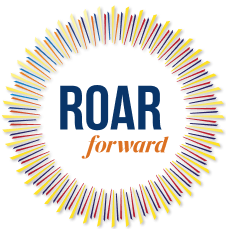By Lindsay Jurist-Rosner
As my mother’s caregiver, I wore more hats than I ever could have imagined.
My mom battled progressive multiple sclerosis for 28 years. During these decades I was not only her daughter—I was her best friend, therapist, nurse, advocate, and confidant as we juggled a complex healthcare system seemingly built to exhaust, strain, and wear out families.
Caregiving for my mom profoundly changed my life. It led me down a career path focused on making the lives of families easier, and it taught me something I’ll never forget: while my family’s story of caregiving was decidedly unique and personal, the journey we navigated was one that millions of families experience.
In the United States alone, more than 70 million family caregivers stand at the front lines of health and elder care. This often unrecognized army of unsung heroes plays a pivotal role in the fabric of our society, and their stories highlight the complex dynamics of modern caregiving: managing care for loved ones while juggling careers and being on top of so many other life responsibilities.
While we might not like to think about caregiving, nearly every single one of us will assume the role of family caregiver at some point. And with seismic demographic shifts and the changing nature of healthcare shaping the coming decades, caregiving stands to play an enormous role in our culture and lives.
As we prepare to enter this pivotal “age of caregiving,” here are three things everyone should know.
- We need to collectively rewire behaviors to get ahead of caregiving needs.
When caregiving needs emerge for a family, all too often they do so in the form of crisis and chaos. A sudden medical condition like a fall, illness, or diagnosis upends our lives. Planned care falls through because schools close, paid home health aides get sick, or family and friends aren’t available.
So many of us go about our lives assuming that our own physical health or family care needs won’t impact our day-to-day lives. We know this can’t possibly be true, and yet we still live each day as if the inevitability of immediate care needs will somehow miss us.
What if we treated caregiving like we treat our own financial well-being, and planned ahead for the future? While it may push us out of our comfort zones, planning now for future caregiving needs can help so many families be ready for when a caregiving moment inevitably strikes.
- People are working longer, and support from employers can be game-changing.
There’s abundant research showing that caregiving benefits have a dramatic effect on the health and well-being of a workforce. These benefits—providing employees access to tools, resources, and care experts versed in navigating our complicated healthcare system—save employers substantial amounts of money. One recent study from Harvard Business School shows that when caregiving benefits prevent just five employees from leaving the workforce, it can save a company $200,000.
These caregiving benefits have an important impact on the lives of aging employees, too. In the next decade, employees over the age of 65 will account for nearly 60 percent of all labor force growth. Many of these employees will absorb care responsibilities for partners, children, and grandchildren while also managing their own unique health needs. The same old healthcare benefits or EAPs (employee assistance programs) won’t meet the modern and diverse needs of this critical population.
- We are hungry for stories around care.
So many providing care to loved ones experience isolation, feeling that the challenges they’re facing are unique to them. That has severe consequences for an individual’s long-term physical and mental health, with up to 70 percent of caregivers experiencing clinical symptoms of depression.
Enter the power of storytelling, both to break down the stigma attached to caregiving but also to reverse loneliness and isolation. Research from the think tank New America backs this up.
“The vast majority of engaged streaming viewers in the U.S. want to see their lives—working, managing family life and providing care—represented on screen more often and with more nuance and aspiration,” reports Variety, noting that 84 percent of adult viewers want to see more stories centered around care.
Caregiving might feel daunting, but caring for each other is one of the most important and fundamental things we do as humans.
The opportunity before us to make a real difference in the lives of family caregivers has never been greater, pointing toward new ways of thinking that can create the care infrastructure needed to meet the modern needs of today’s employees and families.
And that won’t only change the lives of countless families—it’ll redefine the very nature of caregiving and shape a new world rooted in love, compassion, and connection.
Lindsay Jurist-Rosner is the CEO and co-founder of Wellthy, a healthcare company that supports families with end-to-end caregiving support and coordination. Wellthy is currently working with more than 30 Fortune 500 companies to support family caregivers in today’s workforce.

